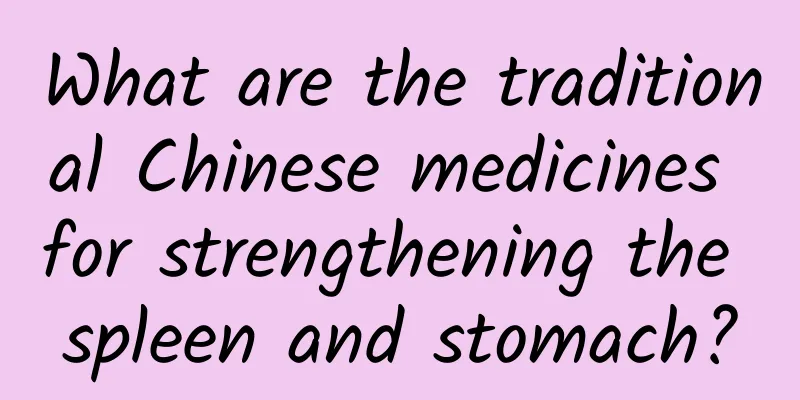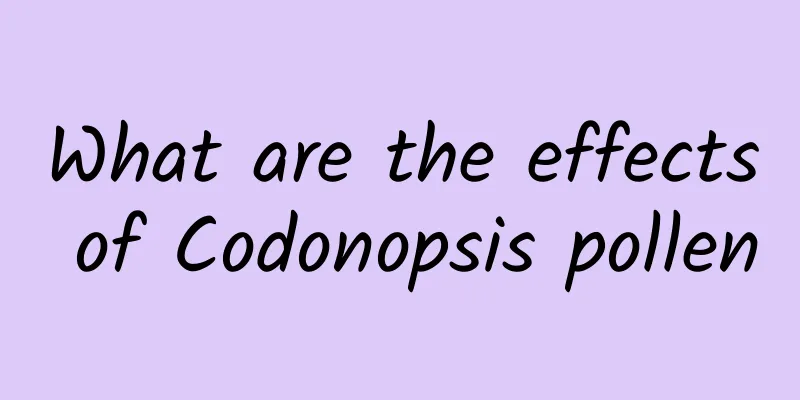The efficacy and function of water hyacinth root

|
Water hyacinth root is a commonly used medicinal material in traditional Chinese medicine and is often used to treat various diseases. So today I will share with you some information about water hyacinth root. 【Other name】 Tudonghua [Source] Medicinal material source: the roots and rhizomes of the Asteraceae plant. [Original form] Monk vegetable is a perennial herb, 30-100cm tall. Rhizome creeping. The stem is erect, much-branched, thick, and has spider-like white hairs. The leaves are alternate, with petioles 5-17cm long, and branches of varying widths, which are thick and have spider-like white hairs. The leaves are alternate, with petioles 5-17cm long, with wings of unequal width, entire or with irregular teeth; the lower stem leaves are kidney-shaped or round kidney-shaped, 3-8cm long, 4-12cm wide, acute or obtuse at the apex, cordate at the base, with unequal wavy large teeth on the margins, and sharp tips at the tooth ends. The leaves have pointed soft hairs along the veins on the upper side, and densely covered with spider-like hairs on the lower side. The middle leaves are triangular-ovate, and gradually become smaller upwards. The flower heads are arranged in a cone; the pedicels are short and covered with white hairs. After flowering, the pedicels are elongated to 2-6 cm long and densely covered with capitate stipitate glandular hairs. The involucre is hemispherical, 2.5-5 mm wide; there are 5-7 bracts, which are broadly ovate, 2-3.5 mm long, entire, and recurved outwards during fruiting. The female flowers are white, 1.5mm long, with the eaves longer than the tube, and the lobes are ovate-oblong. The bisexual flowers are pale white, not strong, and the eaves are twice as short as the tube. Achenes are club-shaped, 6-8mm long, with numerous stalked glandular hairs. The flowering period is July-August, and the fruiting period is September-October. [Habitat distribution] Ecological environment: grows under forests, on forest edges, on roadsides and in the shade and wet places of river valleys. 【Nature and flavor】 Spicy; bitter; neutral 【Functions and indications】Promote lung function and relieve asthma; promote diuresis and reduce swelling; relieve blood stasis and pain. Mainly used for cough and asthma; edema and dysuria; abdominal pain caused by postpartum stasis; traumatic injury [Usage and Dosage] For oral use: decoction, 10-15g. For external use: take appropriate amount and mash fresh product for application. 【Excerpt】 Chinese Materia Medica The above is some basic information about water hyacinth root. I hope you can learn more about Chinese herbal medicine, which will be beneficial to you. |
<<: The efficacy and function of Qingguteng
>>: The efficacy and function of eggplant
Recommend
How do migratory birds "see" the Earth's magnetic field with their eyes?
When the earth was first formed, it was still a m...
This food is suddenly popular! But be careful...
As summer vacation begins, many children are attr...
World Hepatitis Day | Don’t take it lightly! More than 300 million people are infected nationwide, and it has nothing to do with being fat or thin!
Today (July 28) is World Hepatitis Day. At presen...
How did a good lion specimen become an Internet celebrity?
In the Shanghai Natural History Museum, you can s...
The efficacy and function of Yuliangtu
Yuliangtu is a common Chinese medicine. It can be...
What are the effects and functions of Trichosanthes kirilowii
Trichosanthes seed is a wild gourd, which has a g...
384 days in a year! Why?
2025 is 19 days shorter than the Year of the Snak...
The efficacy and function of pink fern
Pink-back fern is a common type of traditional Ch...
@If you often watch short videos, your brain may be affected!
To reduce the time spent on short videos and get ...
It's so hot to wash, but it's not warm after washing... It's the season change, seven questions about washing down jackets
As the weather gets warmer, people are changing o...
The efficacy and function of Azuki
The nutritional value of Azuki shiitake is rich a...
When the Siberian Tiger is called "Big Hakimi"...
Erbin has become really popular recently! The hos...
The efficacy and function of small nine-headed lion grass
Small Nine-Headed Lion Grass is a traditional Chi...
The efficacy and function of bamboo (rat-remaining) teeth
As people's living standards continue to impr...
The efficacy and function of inverted lotus
The inverted lotus can not only supplement the bo...









